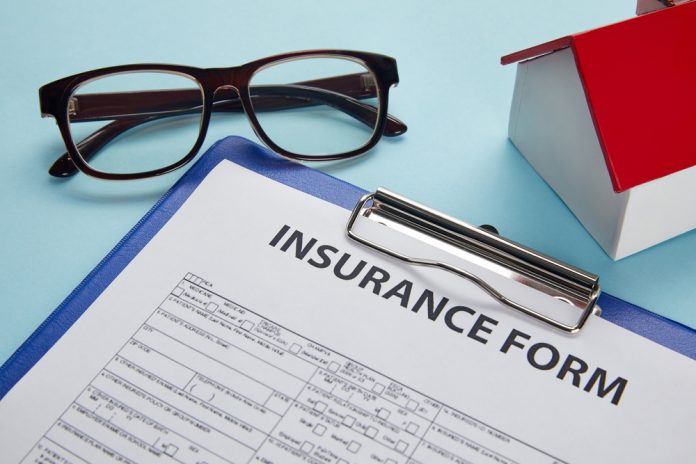When you were young, you might have heard your parents speak with insurance agents to find the insurance policy that suited your family’s needs the best. Back then, you didn’t understand the legal complex terms but now that you are an adult, it is time to hunt for insurance for yourself.
The Different Types of Insurance You Can Choose From
There is more than one type of insurance you’ll need to purchase. Here are nine different types of insurance you need to know about.
1. Life Insurance
With life insurance, you are insuring the most important part of you – your life. You pay a fixed amount quarterly, semi-annually, or annually to a fund as long as you are alive. Once it matures or you die, you or your heirs receive the amount that was promised to you in the beginning.
2. Property Insurance
If your property was damaged during a natural or man-made disaster and you purchased property insurance before the disaster occurred, you’ll receive a compensation to repair the damages. This property can be anything from a piece of land to a car. All sorts of property is available under this umbrella—not just your house. There is particular insurance available for mobile homes, ranches or even condo insurance that you might not have been aware of.
3. Health Insurance
Health insurance pays for your medical expenses, which include custodial care needs, disability and long-term nursing. It is either sponsored by the government or a private company. You are required to pay a fixed amount every year, which will protect you from large hospital bills in the future.
4. Accident Insurance
This type of insurance helps you to pay for hospital and medical bills if you are injured during an accident. Expenses included in accident insurance are emergency treatment, medical exams, hospital stays, lodging, and transportation.
5. Auto Insurance
An insurance designed specifically for your vehicles, auto insurance is a type of personal insurance. It protects you from expenses caused by damage to your car during an accident or any huge expense involving repairs. It is mandatory in most states that you purchase auto insurance in order to operate your vehicle on public roads.
6. Travel Insurance
It doesn’t matter if you are a frequent flyer or travel once every five years. If you don’t purchase travel insurance while traveling, you are making a huge mistake. What if you fall ill in some unknown city and medical fees are too high? What if you lose your luggage? Travel insurance will cover the medical fees and luggage value cost for you. There are two types of travel insurance: travel medical and travel protection (travel medical being included in travel protection).
Other things covered by travel protection insurance include trip cancellation costs, medical evacuation, and travel delay. Travel insurance is a type of a co-insurance where the company pays 80 percent of the cost incurred and the insured pays 20 percent.
7. Homeowners Insurance
One of the first things that you need to do after buying a house is purchase homeowners insurance. HO-3 policy is one of the most preferred homeowners insurance policies that covers your house and its contents against theft and damage of all kinds. You can also make a claim against poor maintenance and general repairs on the house.
Experts suggest that the insurance coverage should be anywhere between $300,000 to $500,000. Different parts of your house are covered for a fixed percent. For instance, the garage is usually covered for 10 percent of total cost and personal belongings between 50 to 70 percent. The house structure is covered for 100 percent. If damage is excessive and you can’t stay in the house, the insurance company will pay for 20 percent of your hotel and food expenses.
8. Business Insurance
This is a simple insurance for your business that helps to manage and spread risks to minimize them. If a business loses something, the insurance covers the costs. A very complex mathematical model is used to analyze risks and compensation.
Obviously, running your own business is an undertaking that’s full of risks. Thankfully, some of them can be mitigated with the help of commercial insurance. There are many types of business insurance available and putting together the right insurance program for your company depends on the specific needs, characteristics, and exposures of your organization. Details that are taken into consideration when putting together the right coverage for your company include your business’s location, number of employees, industry, and more.
While there are basic business insurance coverages that all businesses should — such as general liability, workers’ compensation, and property insurance — there are also coverages that cater to more specific business niches. For example, insurance needs for tech startups are quite specific and most commonly require the following coverage — directors & officers, cyber liability, errors & omissions, and employment practices liability insurance.
9. Unemployment Insurance
If your employer terminates you, you have the right to claim for unemployment insurance until you find a new job. It isn’t valid if you resign from your job. You’ll be directed to submit documents to the United States Department of Labor. You won’t be paid any days before filing the request. However, the insurance has a prerequisite: you need to have worked at the company for at least three months.
If fire damage or natural disasters caused the company to shut down, you are eligible without the prerequisite. You aren’t eligible for unemployment insurance if you were fired for misconduct or damaging company property.
Which insurances do you personally own? Are you looking to purchase more? Let us know in the comments below.
Find a Home-Based Business to Start-Up >>> Hundreds of Business Listings.

















































